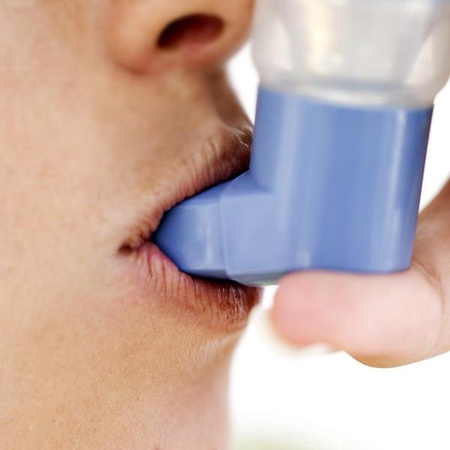A rarely prescribed asthma drug is easier to use and just as effective as conventional treatment with inhalers, according to a new study led by the Universities of East Anglia (UEA) and Aberdeen.
Publishing in the New England Journal of Medicine, the researchers followed 650 patients with chronic asthma for two years. They found that tablets called leukotriene receptor antagonists (LTRAs) managed the disease equally successfully as steroid inhalers for patients with mild asthma and in a parallel sample of patients with moderate asthma, LTRAs managed the disease equally successfully as other "preventer" inhalers when used in addition to steroid inhalers.
LTRAs - sold under the brand names Singulair (montelukast) and Accolate (zafirlukast) – have long been on the market as an alternative to the steroid inhalers commonly used by asthmatics to ward off attacks. They have historically been less fashionable than inhalers, however, and are considered by some to be less effective. Under UK guidelines they are currently recommended as third or fourth steps in asthma management. As a result, LTRAs are far less frequently prescribed than inhalers.
The results indicate that LTRAs could provide an effective alternative to steroid inhalers and other 'preventer' inhalers when used in addition to steroid inhalers, which could be useful for the more than 80 per cent of patients who have problems using inhalers, are unable to use them due to side effects, or do not want to take steroids.
"We hope these findings will increase the options for healthcare professionals when prescribing for this common but disruptive disease," said lead author Prof David Price of the University of Aberdeen and UEA.
"We found that adherence to treatment was vastly improved - by as much as 60 per cent – when patients were given the once-a-day LTRA tablets and patients did not have to worry about using appropriate inhaler technique."
Co-author Dr Stanley Musgrave of Norwich Medical School at UEA added: "LTRAs are easy to use and can help patients control their asthma effectively and improve their quality of life."
Known as ELEVATE, the randomised controlled trial was designed by the UEA and University of Aberdeen team to examine asthma therapies in a real-world setting. The volunteer patients were recruited from 53 doctors' surgeries in Norfolk, Suffolk, Essex, Cambridgeshire, Hampshire and Dorset. All were unpaid. The trial was sponsored by the NHS Health Technology Assessment programme.
Asthma is an increasing problem affecting around 300 million people worldwide, including eight per cent of the UK adult population, and can significantly impact on a person's quality of life. It is a chronic condition characterised by inflammation of the airways causing wheezing, coughing, chest tightness and shortness of breath. World Asthma Day took place on May 3 2011.
‘Leukotriene antagonists as a first-line or add-on asthma controller therapy’ by D Price (UEA/University of Aberdeen), S Musgrave (UEA), L Shepstone (UEA), E Hillyer (Research in Real Life), E Sims (UEA), R Gilbert (Castle Partnership), E Juniper (McMaster University), J Ayres (University of Birmingham), L Kemp (Research in Real Life), A Blyth (UEA), E Wilson (UEA), S Wolfe (Thorpewood Surgery), D Freeman (Sheringham Medical Practice), M Mugford (UEA), J Murdoch (UEA) and I Harvey (UEA) will be published in the May 5 2011 edition of the New England Journal of Medicine.


